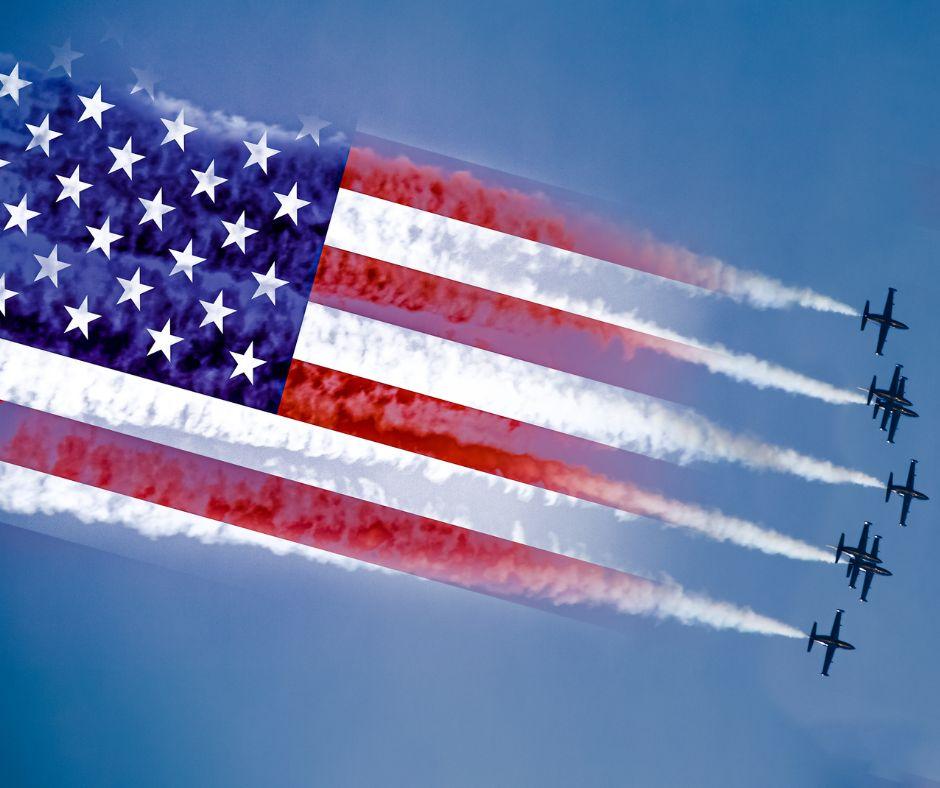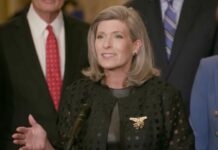The Sixth Circuit Court of Appeals unanimously upheld a class wide injunction that protects U.S. Air Force personnel from the COVID-19 shot mandate since it violates their religious freedom under the First Amendment and the Religious Freedom Restoration Act of 1993 (RFRA).
In the order for Hunter Doster, et al. v. Hon Frank Kendall, et al., the Sixth Circuit affirmed the lower court’s decisions in an opinion by Judge Murphy, joined by Judges Bush and Kethledge, and denying the federal government’s appeal to require the entire class of Air Force members to obtain COVID-19 shots.
After the Air Force ordered all service members to get vaccinated against COVID-19, approximately 10,000 members requested religious exemptions from this mandate. However, the Air Force granted only about 135 of these requests and only to those already planning to leave the service. By July 2022, the Air Force had “administratively separated” 834 members. Yet it has granted thousands of other exemptions for medical reasons, such as a pregnancy or allergy, or administrative reasons, such as an impending retirement.
In fact, the Air Force even agreed that it has not granted any religious exemptions to anyone who does not plan to leave the service within a year. On the other hand, in December 2021, there were a total of 2,047 service members currently with medical exemptions and 2,247 service members currently with
administrative exemptions.
As a result, 18 Plaintiffs, some on active duty and others in the reserves, sued Secretary Kendall, Surgeon General Miller, and the commanders of three major commands in February 2022. The plaintiffs asserted that the shot mandate substantially burdens their religious exercise in violation of their RFRA and First Amendment rights and that the Air Force discriminated against religious exemptions but broadly granted medical and administrative exemptions.
The district court previously granted a preliminary injunction that barred the Air Force from disciplining the plaintiffs for failing to take the COVID injection which did not interfere with the Air Force’s “operational decisions” about their duties or deployability. The lower court also certified a class of thousands of similar service members and extended this injunction to the class. The Air Force then appealed both the district court’s individual injunction and the class injunction.
Since RFRA requires that the military must consider each religious exemption claim individually, the Sixth Circuit noted, “The Air Force fails to identify the specific duties or working conditions of a single Plaintiff. It instead seeks to satisfy RFRA with the ‘general interests’ underlying its vaccine mandate. We are thus asked to deny that common questions exist for purposes of certifying a class but to accept that common answers exist for purposes of rejecting all 18 Plaintiffs’ claims on their merits.”
Judge Murphy also wrote, “Under RFRA, the Air Force wrongly relied on its ‘broadly formulated’ reasons for the vaccine mandate to deny specific exemptions to the Plaintiffs, especially since it has granted secular exemptions to their colleagues. We thus may uphold the Plaintiffs’ injunction based on RFRA alone. The Air Force’s treatment of their exemption requests also reveals common questions for the class: Does the Air Force have a uniform policy of relying on its generalized interests in the vaccine mandate to deny religious exemptions regardless of a service member’s individual circumstances? And does it have a discriminatory policy of broadly denying religious exemptions but broadly granting secular ones? A district court can answer these questions in a ‘yes’ or ‘no’ fashion for the entire class. It can answer whether these alleged policies violate RFRA and the First Amendment in the same way. A ruling for the class also would permit uniform injunctive relief against the allegedly illegal policies. We affirm.”
The appeals court further stated: “RFRA contains a right to sue: ‘A person whose religious exercise has been burdened in violation of this section may assert that violation as a claim or defense in a judicial proceeding and obtain appropriate relief against a government.’ Because the Plaintiffs’ claims arise from this statutory source, we may not adopt common-law abstention rules as if we were regulating a court-created claim…RFRA also applies to the Air Force and its vaccine mandate. The law broadly defines the covered entities: ‘the term ‘government’ includes a branch, department, agency, instrumentality, and official (or other person acting under color of law) of the United States.’”
“RFRA prohibits the government from relying on generalities to meet either part of this test. The government instead must show that its ‘marginal interest’ in enforcing a mandate against a specific ‘person’ is compelling and that it cannot further its interest in another way that imposes less of a burden on that person’s religious exercise. The Plaintiffs met their duty to prove that the vaccine mandate imposed a substantial burden on their sincerely held religious beliefs. The Air Force required them to participate in deposition-style inquiries into their beliefs, and its own chaplains found them sincere. A refusal to take a vaccine also triggers ‘serious disciplinary’ sanctions.”
“The Air Force itself concedes the need for this Plaintiff-by-Plaintiff inquiry. It opposed the certification of a class action because ‘differences in occupational duties, deployment tempo, and work environment all factor into’ the RFRA analysis, and because ‘the roles and responsibilities of individual Airmen and Guardians may differ vastly.’ But the Air Force did not even undertake this individualized inquiry during this litigation, let alone prove a compelling “marginal” interest for any specific Plaintiff. Most glaringly, the Air Force’s opening brief did not describe the duties of a single Plaintiff.”
“As for its health interest, the Air Force says that it must reject religious exemptions because those working in ‘close physical contact’ can spread COVID-19. But the Air Force has allowed medical or administrative exemptions even when these exemptions undercut that interest. The Surgeon General, for example, denied Lieutenant Doster a religious exemption because his work as a student ‘require[d] intermittent to frequent contact with others.’ But the Air Force granted multiple medical exemptions to pregnant women who worked with him and performed ‘identical assignments.’ Likewise, the Surgeon General denied Airman Dills a religious exemption because he had ‘frequent contact with others’ as a passenger representative. Yet Dills worked with ‘[s]everal’ colleagues who obtained other exemptions. The Air Force allowed these members to continue ‘interacting with people’ and ‘working in close quarters’ without change. Perhaps most striking, the Surgeon General denied a religious exemption for Major Corvi (a class member) because her assignment ‘require[d] intermittent to frequent contact with others.’ In the same month, she received a medical exemption for her pregnancy. The Air Force does not explain why service members who remain unvaccinated because of their pending retirement or pregnancy pose less of a risk of spreading COVID-19 than those who remain unvaccinated because of their religion,” Judge Murphy wrote.
“As for its readiness interest, the Air Force says that it must ensure that all service members remain immediately deployable. But service members who obtain medical or administrative exemptions generally cannot deploy because the Air Force treats anyone who has not taken a COVID-19 vaccine as nondeployable…So even though the Surgeon General denies religious exemptions on the ground that the Air Force ‘must be able to leverage our forces on short notice,’ the Air Force does not believe that this ‘immediately deployable’ concern also requires it to compel the vaccination of a service member who has an allergy or plans to retire in the near future.”
The Sixth Circuit also noted, “The Air Force also fails to explain how temporarily retaining class members—rather than immediately discharging them—will harm any operational concerns. Its own willingness to exempt these thousands of class members from its mandate while it processed their exemption requests over many months undercuts any such urgent need.”
On December 14, Liberty Counsel will present oral argument at the Eleventh Circuit Court of Appeals on behalf of a Lt. Colonel of the U.S. Marines and a Navy Commander of a Warship. Then in January 2023, Liberty Counsel will return to court seeking to convert the classwide preliminary injunction to a permanent injunction for the U.S. Marines.
Liberty Counsel Founder and Chairman Mat Staver said, “This is a great decision that grants protection for the religious freedom for all Air Force personnel from Joe Biden’s unlawful COVID shot mandate. No service member should be required to choose between service to the country and service to God. This will be a good precedent for our upcoming argument at the Eleventh Circuit Court of Appeals and our January trial seeking a permanent classwide injunction for the U.S. Marines.”

















